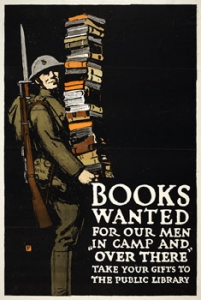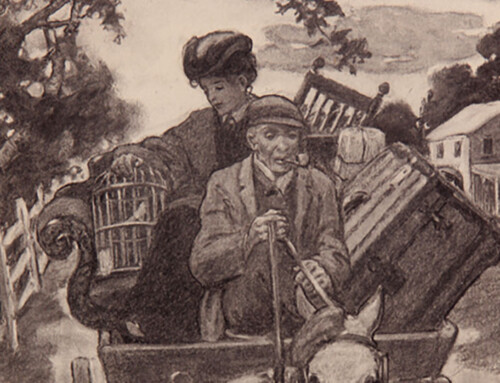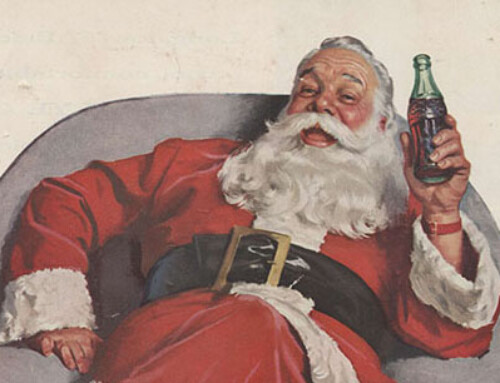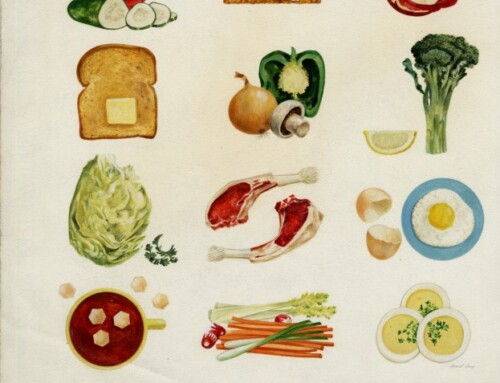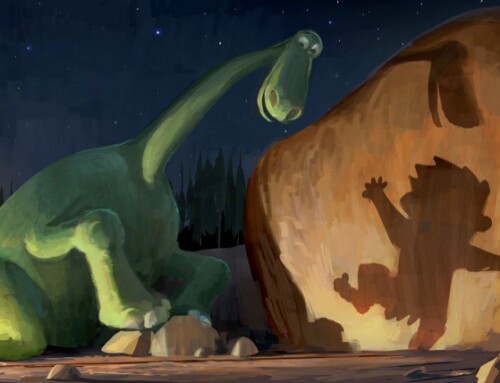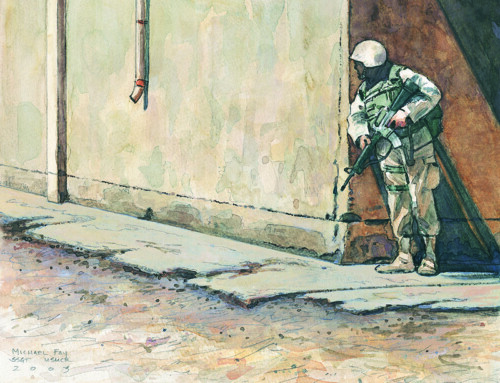When seeking an inspiration for a new illustration, artists may sometimes re-address a successful image of their own or they may borrow a concept from other work that they admire. In 1962 Norman Rockwell created a poster design for the Stockbridge Massachusetts Library in honor of its Centennial Celebration. His inspiration appears to have been a poster created during World War I by the illustrator Charles Buckles Falls.
C. B. Falls was one of the great poster artists of World War I. For his poster, sponsored by the American Library Association for their campaign to create libraries for U. S. military posts, Falls pictured a doughboy balancing a tower of donated books.* This campaign was to encourage families at home to donate books to the troops in camps at home and at the front for their recreation. Like armed forces troops over-seas today, down time can weigh heavy on a soldier’s hands.
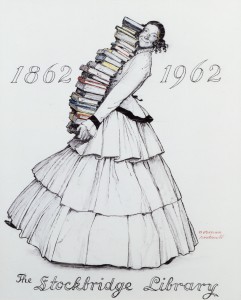
Norman Rockwell (1894-1978)|Stockbridge Library Library, 1962|Charcoal and watercolor on paper|Collection of the Stockbridge Library Association
When Rockwell referenced Fall’s design to create his local library’s poster, he chose to focus on a likely lady librarian from the early days of the library. To prepare for the poster’s image, Rockwell posed his third wife, Molly Rockwell, in costume in his Stockbridge studio for a series of study photographs. To assist Molly in the proper placement of her feet, Rockwell posed her with blocks under her shoes so that it would appear as though the librarian was walking forward as she carried her piles of books. In the photos we can see that Rockwell has even piled a tower of books that lean back against her chest to achieve the proper affect. It must have been a challenge for Molly to hold onto that tower of books.
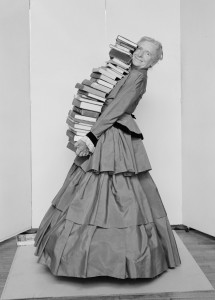
Study photo of Molly Rockwell for Stockbridge Library Librarian|Norman Rockwell Museum Archival Collection, ST1976.14444, negative
In the drawing for the final poster image we can see that Rockwell has transformed Molly’s face. Indeed he probably used the Stockbridge Library’s curator of the historical collections, Polly Pierce, as a model for the character’s face. But the period appropriate costume Molly posed in was pictured in exact detail. The librarian’s hair is styled based on a look from the previous century. In the time before e-books and book content available on the internet, books were printed only on paper. Libraries were where the world’s knowledge was gathered and where mental entertainment could be found. As public education became mandatory in the nineteenth century, American libraries stood as a democratic society’s equalizer. Andrew Carnegie said, “There is not such a cradle of democracy upon the earth as the Free Public Library, this republic of letters, where neither rank, office, nor wealth receives the slightest consideration.”** Available to any one who came through their doors, libraries were used and are by their communities for entertainment, socialization, and to gain or pursue knowledge. By choosing to re-address C. B. Fall’s World War I image, Rockwell was also reflexively making reference to the world of illustration in which they worked. For without the American late nineteenth century explosion of publications, there would have been no need for the army of illustrators trained and employed by book and magazine publishers from the 1890s through the first half of the twentieth century.
April 10-16, 2011 is National Library Week Happy Reading.
*Wayne G. Hammond, The Graphic Art of C. B. Falls: An Introduction (Williamstown, MA: Chapin Library, Williams College, 1982): 18. According to Hammond, “The poster made from this painting became the most circulated of the war. Its basic design was also incorporated, with new lettering by Falls, in a label placed in books sent to soldiers and sailors around the world.
** https://www.quotegarden.com/libraries.html
April 7, 2011
By Joyce K. Schiller, Curator, Rockwell Center for American Visual Studies, Norman Rockwell Museum


